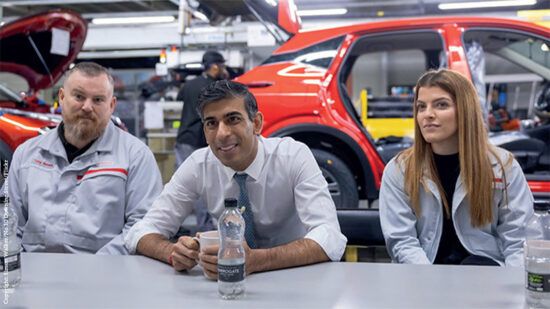For the past year, Covid-19 has necessitated a rapid transformation in the private sector to reduce the need for congregating people in workplaces. As the onslaught of the pandemic picked up, companies digitized their workplaces and built new consumer experiences to ensure the sustainability of their operations, so they would survive what continues to be an existential threat toward business activity.
Digital transformation requires engineering new systems to meet both the consumer needs and expectations. It occurs in unseen ways that benefit a consumer: Migrating to multi-cloud environments or employing distributed models like edge computing, which reduces latency and improves the digital experience.
In many respects, the digital transformation that the pandemic forced upon businesses are the mechanics of business continuity, ensuring that their operations are primed for growth. But the other, too-often neglected side of the same coin is sustainability, which are the systems that govern how a business interacts with the world around it.
Globant is best known for working with companies to help chart their digital transformations, however our Sustainability Brand Studio offering was born out of the realization that the most resilient companies are increasingly viewing digitization holistically, recognizing that true transformation requires engineering both how the business operates and also how it interacts with the outside world.
In today’s multi-stakeholder environment, business transformations in both the digital and sustainability construct are often driven by market needs. Where digital transformation often benefits the bottom line by improving efficiencies and delivering value to clients, there is a proliferation of data that highlights consumers, particularly young consumers, are attracted to purpose-driven brands. These firms, whether B2C or B2B, can gain access to capital at a lower cost and realize more procurement opportunities. Lastly, with the likelihood of a carbon tax growing by the day, forward-looking companies are beginning to explore how they can mitigate these future costs by reducing their emissions and by offsetting emissions now.
START WITH SIMPLIFYING
Sustainability is complicated and there is an increasingly rich amount of data and research available in the public realm. Focusing on the “E” of “ESG,” climate is one of the most complex issues of our time, yet the most elegant and actionable solutions that businesses can take are often the most simple. For instance, businesses can and should start by measuring their impact, recognizing the costs burdened onto others based upon these measures. Then, see where emissions can be reduced most significantly at the lowest cost through technology and processes available today.
This is not to say that businesses should not focus on wide-reaching technological compensations and setting ambitious targets for the future. On the contrary, the implementation of science-based solutions will be the turning point of conservation. But starting simple and starting now is indispensable.
ANTI GREENWASHING
Where companies today go wrong often is in their communications strategy. Too often, companies over-promise in their press releases and under-deliver in their ESG and regulatory reports. Transparency and authenticity are the best communications approach to take when showcasing what sustainability means to an organization and how it is working towards making a change. This is the opposite of greenwashing. Being honest about challenges, highlighting areas where a business sees an opportunity to improve its sustainability efforts and outlining key actions for realistic growth. This new kind of marketing prioritizes honesty, rewards companies and makes consumers feel more connected to brands they love.
The pandemic has ushered in a period of rapid change, and the private sector is realizing that its standard methods of working are no longer viable. Limited business models create a limited business outcomes. Companies cannot view their transformations within the prism of “digital” or “sustainable” but rather holistically to be both resilient against unexpected headwinds and primed for growth into the future.
Especially in complex systems, such as those that underpin sustainability mechanisms and outputs for firms large and small, the first steps are always the hardest. However, by building a roadmap and understanding where achievements can be made incrementally, as well as communicating honestly and transparently with stakeholders, businesses can be on the road to long term progress.
Elena Morettini is director of the Globant Sustainable Business Studio.








